On October 22, the Moscow Multimedia Art Museum is inaugurating an exhibition “Old Moscow, Selected Pieces” by Yuri Eremin, an outstanding Russian Pictorialist photographer from the early 20th century.
The Russian Pictorialist photography school sports a noteworthy position in the history of photography.
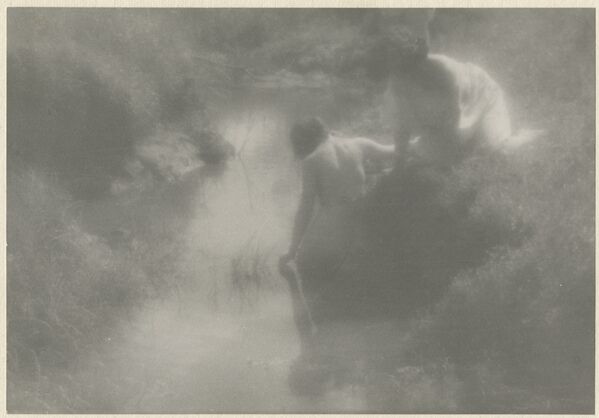
1/13
© Photo : Yuri Yeryomin / http://www.mamm-mdf.ru/en/
On October 22, the Moscow Multimedia Art Museum is inaugurating an exhibition “Old Moscow, Selected Pieces” by Yuri Eremin, an outstanding Russian Pictorialist photographer from the early 20th century.
The Russian Pictorialist photography school sports a noteworthy position in the history of photography.
Pictorialism was an artistic movement that dominated photography from 1885 to 1914. It emerged as a response to counteract the notion that photography was not an art.
Above: “In a stream” by Yuri Eremin. 1920, silver gelatin print.
The Russian Pictorialist photography school sports a noteworthy position in the history of photography.
Pictorialism was an artistic movement that dominated photography from 1885 to 1914. It emerged as a response to counteract the notion that photography was not an art.
Above: “In a stream” by Yuri Eremin. 1920, silver gelatin print.
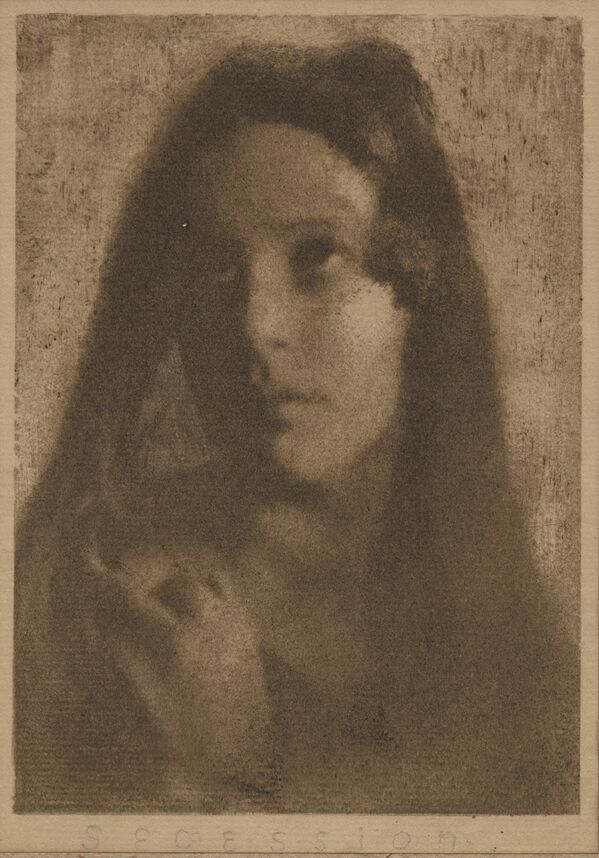
2/13
© Photo : Yuri Yeryomin / http://www.mamm-mdf.ru/en/
Pictorialist photographers strove to express their emotions and attitudes through art, largely inspired by symbolists and impressionists. Various methods were used to modify photographs in order to emit an emotional response from its viewer.
Above: “Secession” by Yuri Eremin. 1929, a silver gelatin print.
Above: “Secession” by Yuri Eremin. 1929, a silver gelatin print.
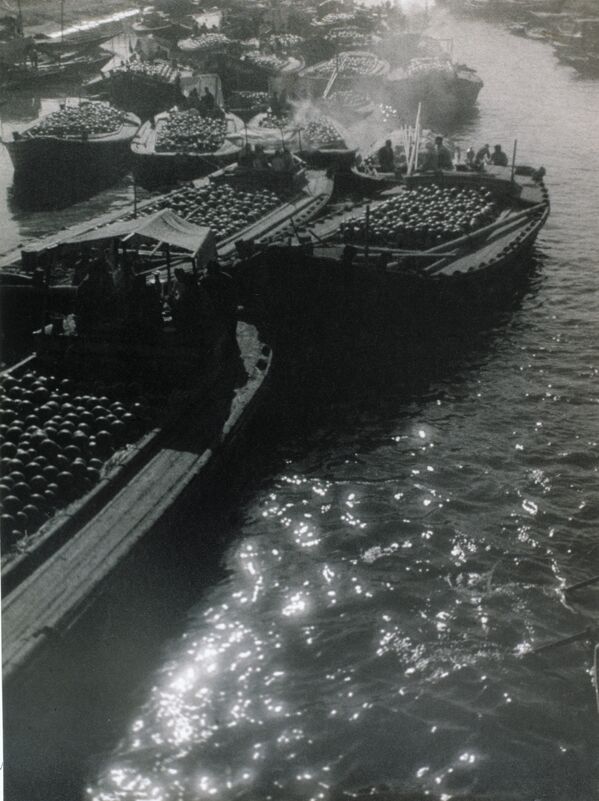
3/13
© Photo : Yuri Yeryomin / http://www.mamm-mdf.ru/en/
Pictorialists “create” photographs rather than simply take them.
Above: “Barges with watermelons on the Kutum” by Yuri Eremin. 1929, a silver gelatin print.
Above: “Barges with watermelons on the Kutum” by Yuri Eremin. 1929, a silver gelatin print.
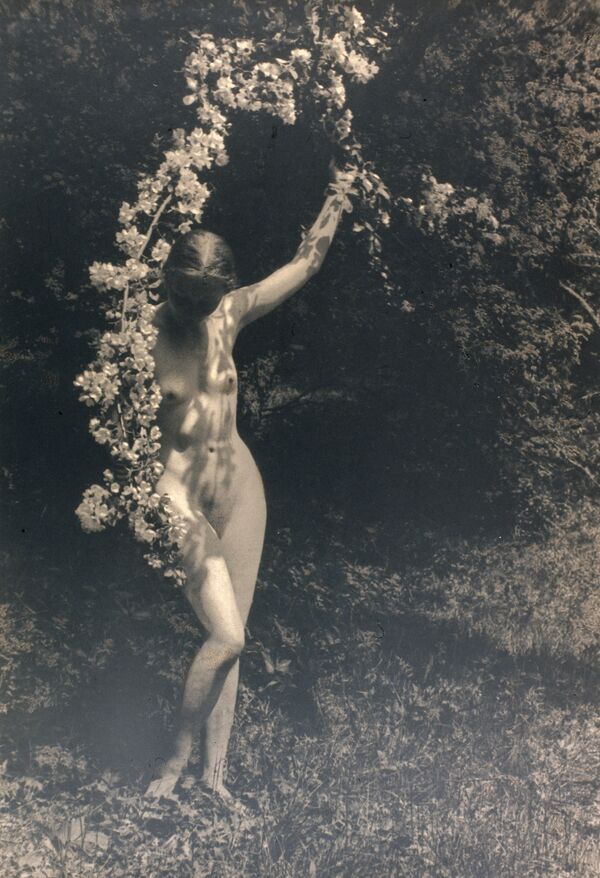
4/13
© Photo : Yuri Yeryomin / http://www.mamm-mdf.ru/en/
To imprint certain feelings, artists used soft-focus lenses, filters, silver salts, gum bichromate and other techniques; occasionally brush traces can be spotted on their pictures.
Above: “Spring” by Yuri Eremin. Early 1920s, a silver gelatin print.
Above: “Spring” by Yuri Eremin. Early 1920s, a silver gelatin print.
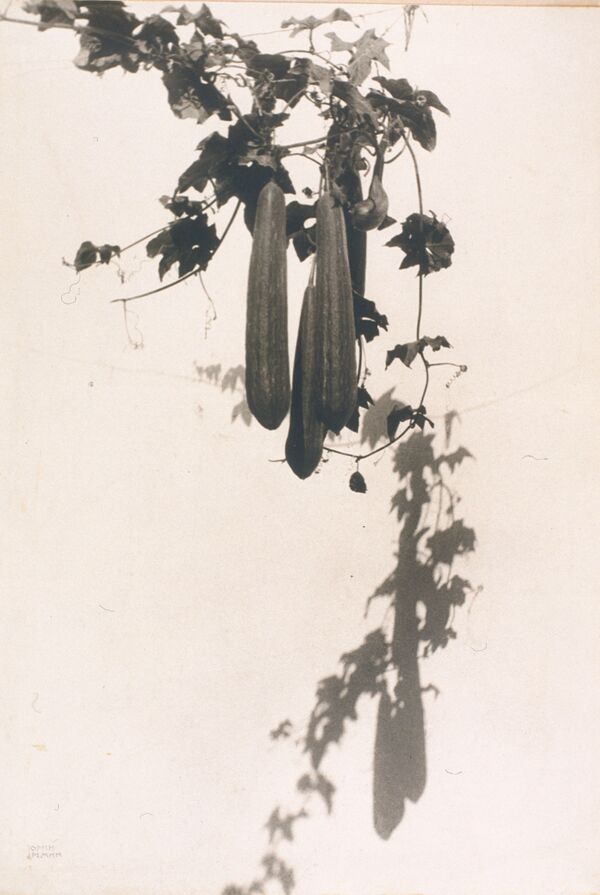
5/13
© Photo : Yuri Yeryomin / http://www.mamm-mdf.ru/en/
The works of exceptional Pictorialist photographs were often confused with paintings.
Above: “Luffa” by Yuri Eremin. Late 1920s, silver gelatin print.
Above: “Luffa” by Yuri Eremin. Late 1920s, silver gelatin print.
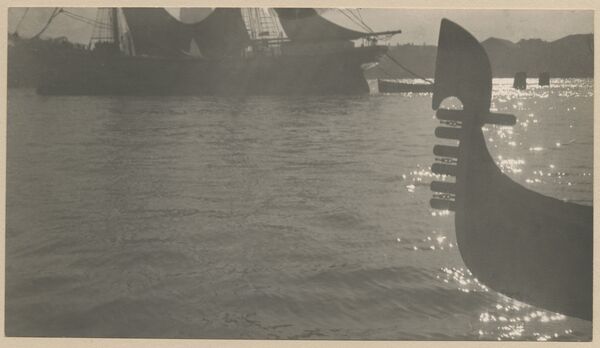
6/13
© Photo : Yuri Yeryomin / http://www.mamm-mdf.ru/en/
Paul L. Anderson, a pronounced advocate of Pictorialism, wrote that this style was full of “suggestion and mystery”, where “mystery consists in affording an opportunity for the exercise of the imagination, whereas suggestion involves stimulating the imagination by direct or indirect means”.
Above: “Wind in Venice” by Yuri Eremin. 1910, silver gelatin print.
Above: “Wind in Venice” by Yuri Eremin. 1910, silver gelatin print.
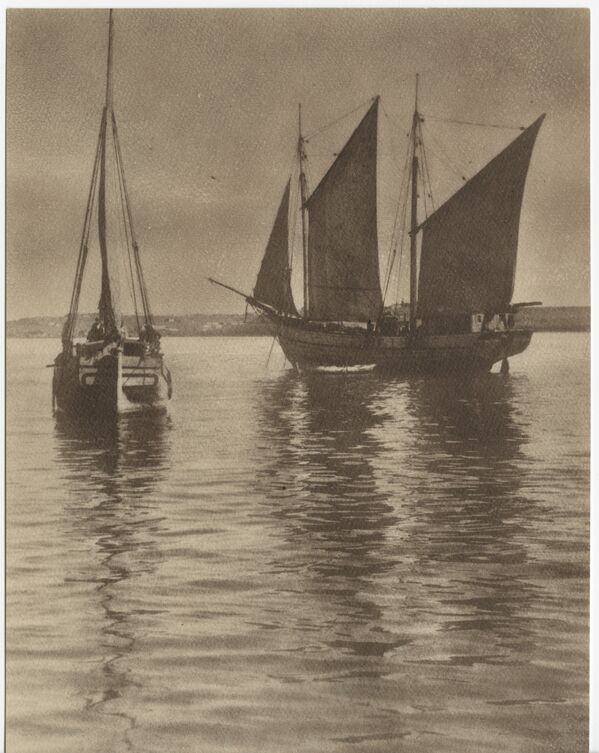
7/13
© Photo : Yuri Yeryomin / http://www.mamm-mdf.ru/en/
Naomi Rosenblum in “A World History of Photography” underscores that Pictorialists use “vague shapes and subdued tonalities ... [to convey] a sense of elegiac melancholy.”
Above: “Vessels. Sevastopol” by Yuri Eremin. 1930, bromoil.
Above: “Vessels. Sevastopol” by Yuri Eremin. 1930, bromoil.
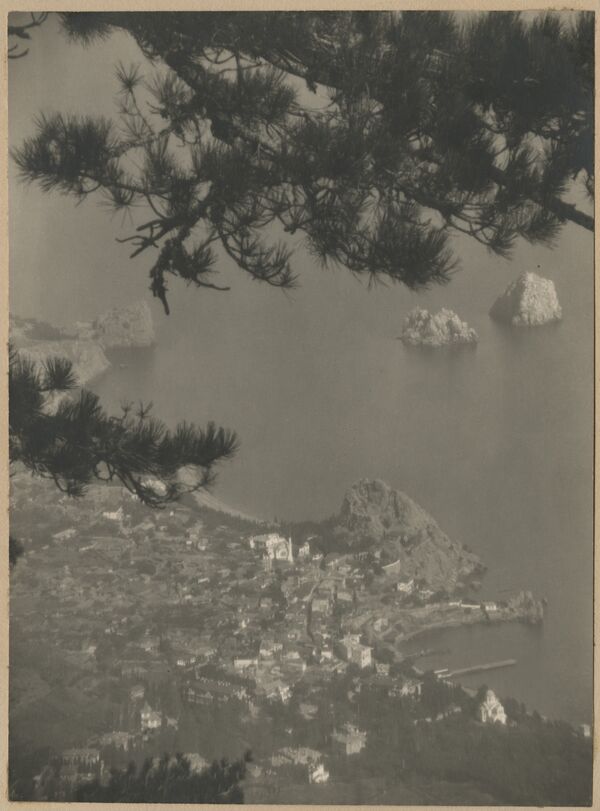
8/13
© Photo : Yuri Yeryomin / http://www.mamm-mdf.ru/en/
Pictorialism started to decline when Modernism took to the stage and people’s interest in photography shifted from softness to the new style’s sharp lines.
Above: “Gurzuf. Avinda” by Yuri Eremin. 1925, silver gelatin print.
Above: “Gurzuf. Avinda” by Yuri Eremin. 1925, silver gelatin print.
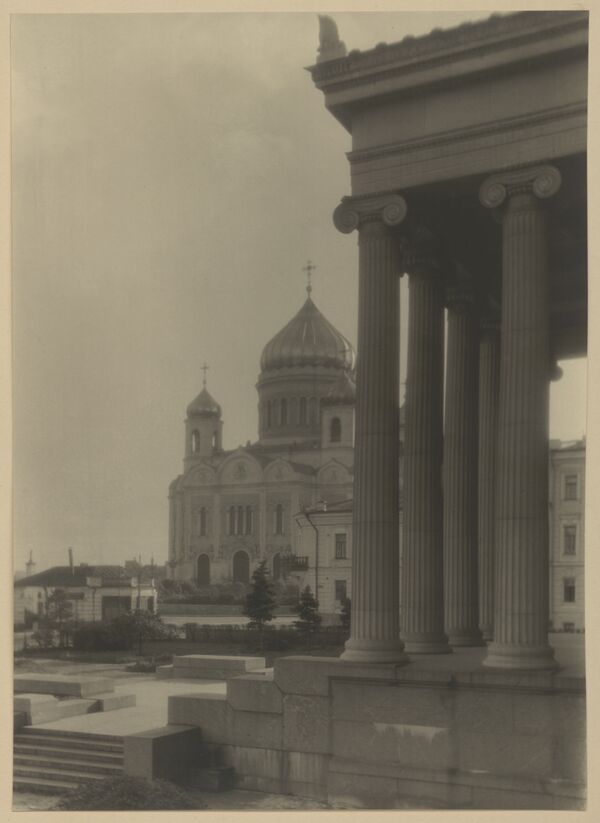
9/13
© Photo : Yuri Yeryomin / http://www.mamm-mdf.ru/en/
Yuri Petrovich Eremin was born in Russia in 1881. He worked as a mineworker and teacher before settling in Moscow at age 22.
Above: “The Cathedral of Christ the Savior. View from the Pushkin Museum of Fine Arts” by Yuri Eremin. Late 1920s, Moscow, silver gelatin print.
Above: “The Cathedral of Christ the Savior. View from the Pushkin Museum of Fine Arts” by Yuri Eremin. Late 1920s, Moscow, silver gelatin print.
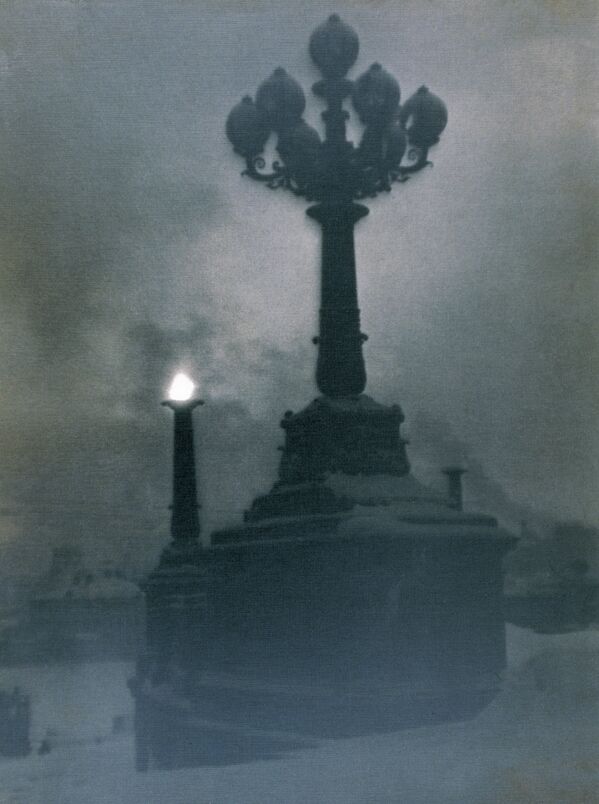
10/13
© Photo : Yuri Yeryomin / http://www.mamm-mdf.ru/en/
After marrying in 1909 he travelled to Europe and took numerous photographs in Italy, France, Austria and Germany.
Above: “A Pomerantsev light” by Yuri Eremin. Moscow, 1929, silver gelatin print.
Above: “A Pomerantsev light” by Yuri Eremin. Moscow, 1929, silver gelatin print.
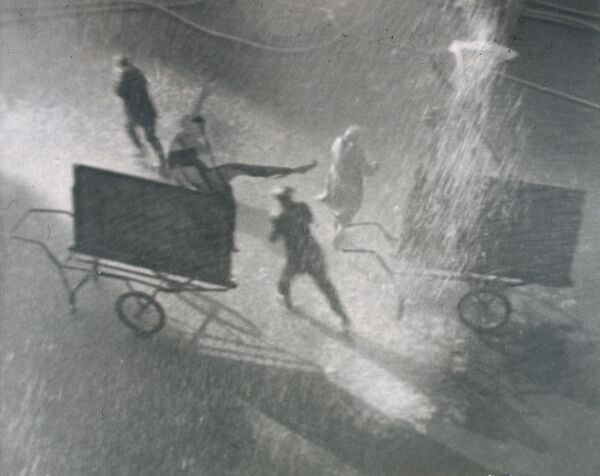
11/13
© Photo : Yuri Yeryomin / http://www.mamm-mdf.ru/en/
In 1911 his amateur works afforded him admittance to the Russian Photographic Society.
Above: “Sunny rain” by Yuri Eremin. 1926-1928, silver gelatin print.
Above: “Sunny rain” by Yuri Eremin. 1926-1928, silver gelatin print.
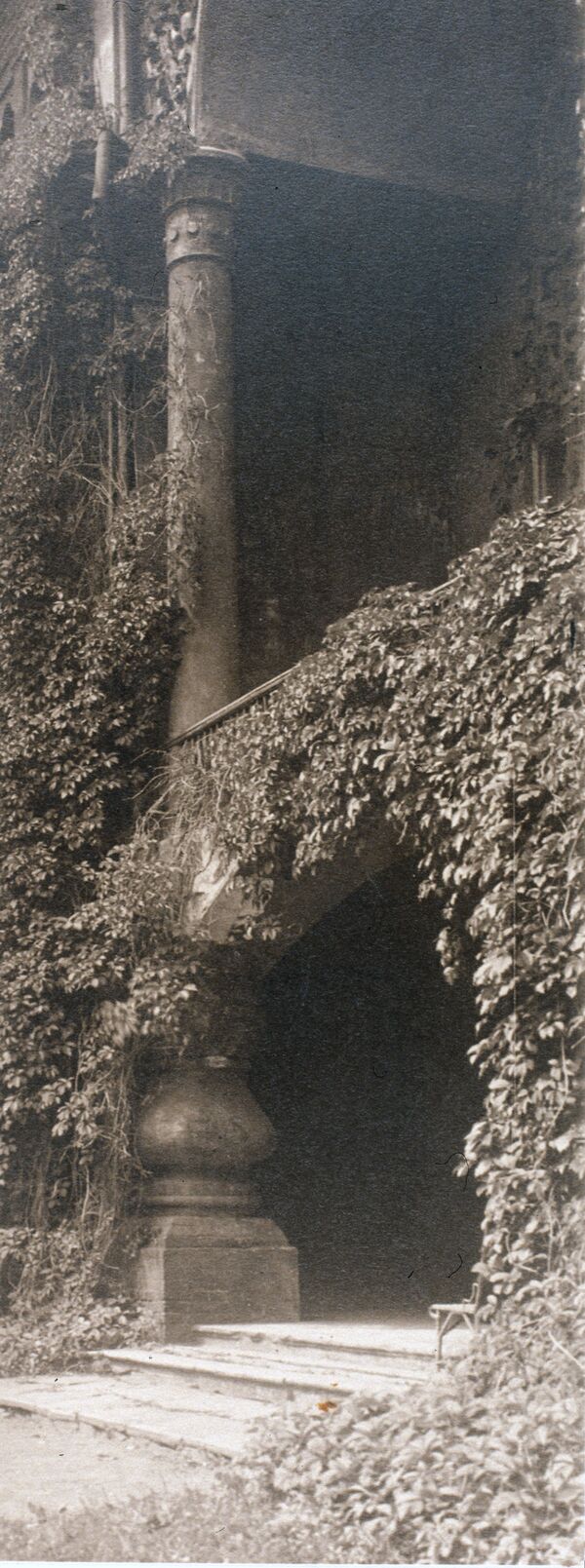
12/13
© Photo : Yuri Yeryomin / http://www.mamm-mdf.ru/en/
The Soviet authorities had tasked him with photographing and drawing historical monuments damaged during the Russian Revolution. His pictures contributed to their restoration.
During the Soviet epoch Yuri Eremin organized numerous exhibitions, wrote magazine, taught photography and established the finest artistic photographic studio in the country.
Above: “Pokrovskoye-Streshnevo” by Yuri Eremin. 1923, silver gelatin print.
During the Soviet epoch Yuri Eremin organized numerous exhibitions, wrote magazine, taught photography and established the finest artistic photographic studio in the country.
Above: “Pokrovskoye-Streshnevo” by Yuri Eremin. 1923, silver gelatin print.
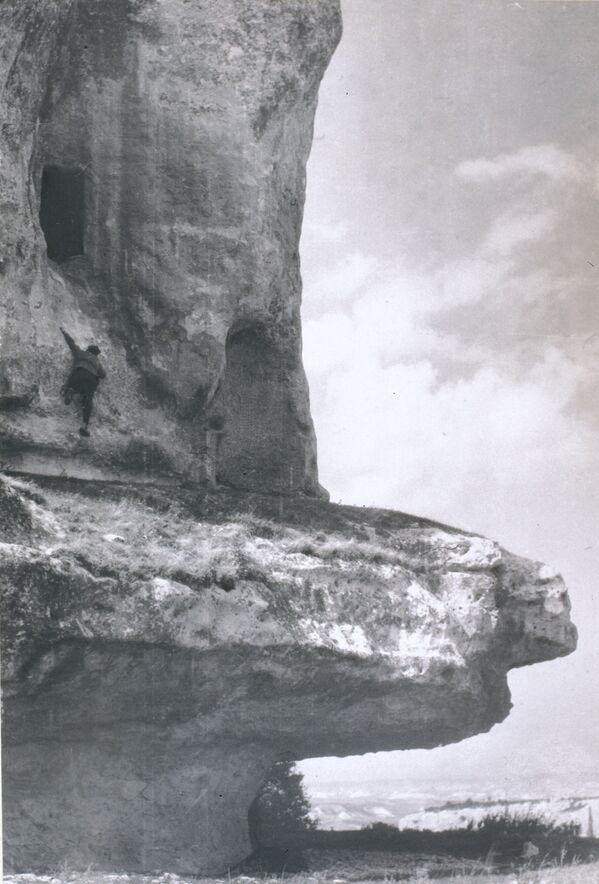
13/13
© Photo : Yuri Yeryomin / http://www.mamm-mdf.ru/en/
Having fallen ill, he died in 1948. Members of the Russian Academy of Sciences, where he had given classes for 20 years, had attended his funeral.
Above: “Drum Cave. Mangup” by Yuri Eremin. Early 1920s, silver gelatin print.
Above: “Drum Cave. Mangup” by Yuri Eremin. Early 1920s, silver gelatin print.

